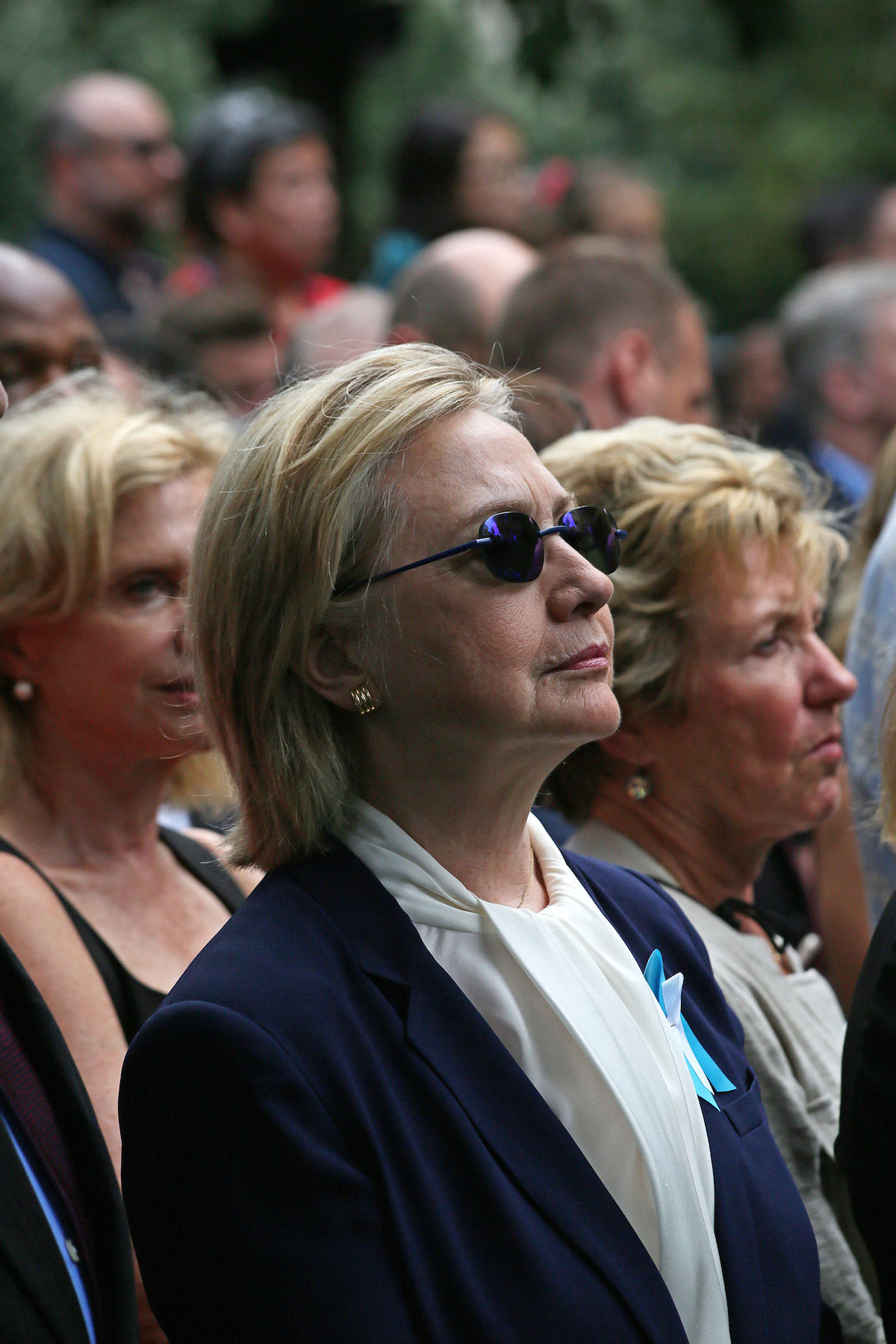Hillary Clinton’s wealth, power and lack of accountability – combined with her white privilege – have allowed her to casually flip-flop on issues and lead in the election despite her low ratings among certain demographics.
Clinton is facing seriously low ratings in this election, quickly becoming one of the least popular candidates in modern political history, according to a July poll conducted by New York Times and CBS News.
Two likely reasons as to why the candidate is unfavorable in polls could be her inconsistent approach on a variety of issues and her failure to relate to a diverse group of people — specifically, people of color
For those unaware, Clinton’s privileged lifestyle is one defined by being exempt from certain burdens and struggles — the kind of exemptions that non-white people are not given.
I fall into the two demographics that find the candidate the most unfavorable, young people and women.
Moreover, Clinton has made embarrassing and rather offensive attempts at acquiring the vote of many young people of color.
Her December 2015 ad campaign “7 things Hillary Clinton has in common with your abuela” was geared towards young Latino voters, who later claimed it was just Clinton’s method of “Hispandering,” according to an article by Latino Rebels.
The campaign quickly turned into a meme and the hashtag #NotMyAbuela became viral across social media platforms.
As a Latina, this form of faux solidarity and pandering is simply laughable. I have a hard time believing that abuelas, especially my own, would think they have anything in common with Clinton – other than gender.
Her incessant attempts to attract young voters of color through these ridiculous and offensive means only continue to strengthen my belief that she desperately needs my vote.
If Clinton truly wanted to connect with the Latino community, instead of comparing herself to grandmothers of a completely different background from hers, she should have remained consistent with her views on immigration.
Clinton told CNN in a 2014 interview while discussing her memoir “Hard Choices” and the political decisions she’s made, that undocumented Central American children “should be sent back.” However, during a Democratic debate in March, she said to moderator Jorge Ramos, “I will not deport children.”
Furthermore, Clinton has also recently called herself a feminist and her mixed bag of supporters — many who are older and affluent, according to Eric Sasson’s article “Who is the Hillary Voter?” on New Republic — agree.
Calling her a “feminist” only reflects the misunderstanding of what feminism actually stands for. Intersectional feminism, a term first coined by professor Kimberlé Crenshaw in 1989, is defined as “the view that women experience oppression in varying configurations and degrees of intensity,” and how that oppression is interconnected.
Clinton’s white privilege excuses her from experiencing levels of oppression that women of color disproportionately face, which is why they do not feel compelled to vote for her. She does not fulfill the standards set by intersectional feminism, instead complying to mainstream feminism that the general public can accept.
During a Clinton rally in February, former Secretary of State Madeleine Albright publicly shamed women who did not support Clinton, saying there was “a special place in hell” for them.
Albright’s statements tie to Clinton’s “first woman president” rhetoric, which fails to address the fact that she owes her success to her race, wealth and power status — not her gender.
In an article “I’m not with her: why women are wary of Hillary Clinton” by Angelina Chapin in The Guardian, attorney Anoa Changa says, “access to opportunity in politics is often limited to people who are white or upper middle class. When we look at issues as gender only, it overshadows so many other ways that women are shut out of the process.”
In April, a national poll conducted by the National Review revealed that 58 percent of women from all backgrounds opposed Clinton.
These women likely weren’t supporting her because of her position as a wealthy, white woman in power and inability to relate to a diverse pool of voters.
After receiving the Democratic nomination, Clinton said in her victory speech that the win was for her mother, who was “born the year women won the right to vote.”
Actually, most women of color were not able to vote without overcoming certain roadblocks first (such as literacy tests and language barriers) until the passage of the Voting Rights Act of 1965. This further perpetuates the idea that women’s struggles and successes apply to white women first, and in this case, Clinton.
I understand that Clinton is not the only politician that has made mistakes.
Clinton has over 25 years of political experience, which makes her a qualified candidate. If elected, I think she can make decisions in line with a progressive agenda, especially after adopting several of Senator Bernie Sanders’ policies, including raising the minimum wage to $15 and making college debt-free.
Sanders was the candidate I felt best represented my ideals. Since he is no longer running, I am disillusioned. He did not pander to the many groups Clinton has struggled to please.
His views and political stances remained relatively unchanged since the beginning of his career, according to an article “Bernie Sanders has stuck to the same message for 40 years” by Tamara Keith on NPR. Clinton, on the other hand, has not been able to do the same.
I know that young voters, especially young women of color like myself, are in this position feeling frustrated with Clinton, who continues to use her white privilege to come after my vote while she leads in the election.
I have yet to decide whether to give Clinton my vote come November, but I’d rather settle for a Clinton presidency than deal with Donald Trump as leader. Despite this, I am still hopeful that someday there will be a candidate that represents me accurately and makes a genuine effort to reach out to young women of color.




